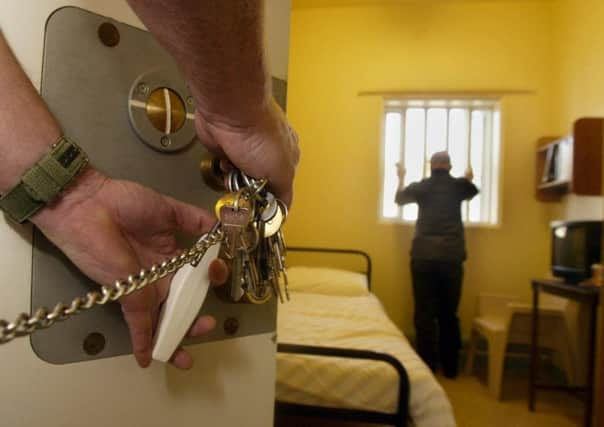Landlines in Scottish jail cells could cut reoffending


It would allow inmates to maintain close family ties can assist with cutting the risk of reoffending, according to Reform Scotland.
Similar initiatives already exist south of the Border and there are now calls for a pilot scheme in Scotland.
Advertisement
Hide AdAdvertisement
Hide AdAlison Payne, Reform Scotland’s research director, said: “Evidence suggests that maintaining close family ties can help prevent reoffending. However, due to distance or circumstance some family members will be unable to see or speak to their loved one as often as they would like, if at all.
“We know that the vast majority of offenders will be released from prison after a very short sentence and it is vital that those support networks are maintained.
“Allowing prisoners to have more regular contact to friends and family, as they do in England and Wales, can benefit not just the inmate, but their family as well.”
In Scotland, prisoners can access communal phones at certain times, a report from the think tank states. The system works on a credit basis with payment coming from the prisoner’s cash account. They are only able to call the numbers of individuals on an approved list. However, in England and Wales, a number of prisons now have landline phones in the cells.
This allows prisoners to contact friends and family more frequently and in private away from what can be an intimidating communal setting.
This has particular resonance at Christmas, when both prisoners and their families will feel the loss most profoundly.
The ability to pick up the phone on Christmas Day could make a significant difference to a prisoner’s propensity to reoffend, and to the children waiting for their release
In its paper, Prisons – Calling Home For Christmas, the think tank also calls for an end to sentences of less than six months, as these have been shown to be ineffective at promoting rehabilitation. Justice secretary Humza Yousaf has already pledged to extend the current presumption against sentences of three months or less to 12 months.
Advertisement
Hide AdAdvertisement
Hide AdIn 2016-17 nearly two thirds of all individuals given a prison sentence served less than three months.
Shorter sentences also have the potential to cut off an offender from their family and support network, when it is know that maintaining such links helps prevent reoffending.
A Scottish Prison Service spokesman said: “Prisoners have access to pin phones to keep in contact with their family and friends.
“We don’t have any current plans to put phones in cells.”